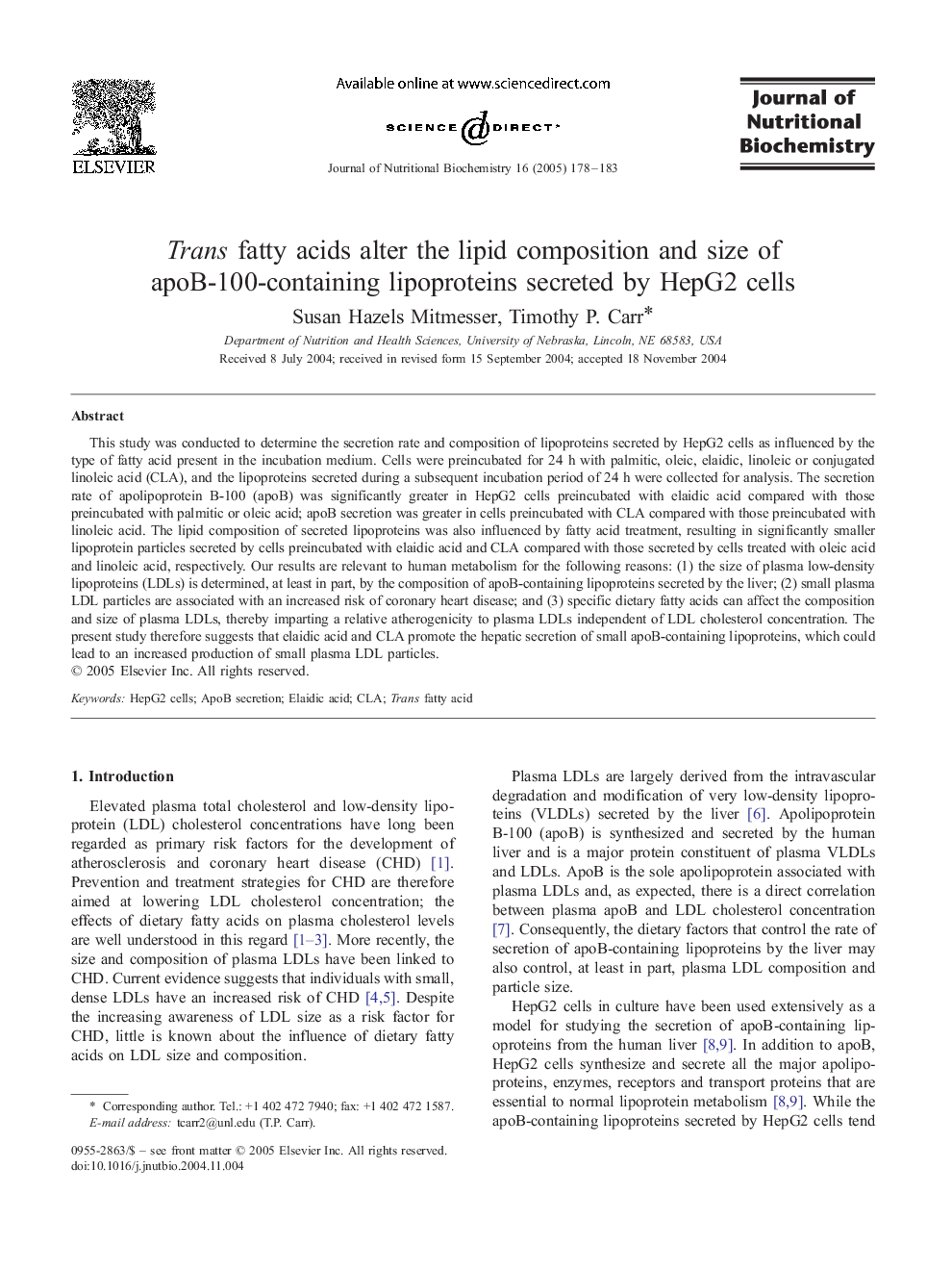| Article ID | Journal | Published Year | Pages | File Type |
|---|---|---|---|---|
| 9891596 | The Journal of Nutritional Biochemistry | 2005 | 6 Pages |
Abstract
This study was conducted to determine the secretion rate and composition of lipoproteins secreted by HepG2 cells as influenced by the type of fatty acid present in the incubation medium. Cells were preincubated for 24 h with palmitic, oleic, elaidic, linoleic or conjugated linoleic acid (CLA), and the lipoproteins secreted during a subsequent incubation period of 24 h were collected for analysis. The secretion rate of apolipoprotein B-100 (apoB) was significantly greater in HepG2 cells preincubated with elaidic acid compared with those preincubated with palmitic or oleic acid; apoB secretion was greater in cells preincubated with CLA compared with those preincubated with linoleic acid. The lipid composition of secreted lipoproteins was also influenced by fatty acid treatment, resulting in significantly smaller lipoprotein particles secreted by cells preincubated with elaidic acid and CLA compared with those secreted by cells treated with oleic acid and linoleic acid, respectively. Our results are relevant to human metabolism for the following reasons: (1) the size of plasma low-density lipoproteins (LDLs) is determined, at least in part, by the composition of apoB-containing lipoproteins secreted by the liver; (2) small plasma LDL particles are associated with an increased risk of coronary heart disease; and (3) specific dietary fatty acids can affect the composition and size of plasma LDLs, thereby imparting a relative atherogenicity to plasma LDLs independent of LDL cholesterol concentration. The present study therefore suggests that elaidic acid and CLA promote the hepatic secretion of small apoB-containing lipoproteins, which could lead to an increased production of small plasma LDL particles.
Related Topics
Life Sciences
Biochemistry, Genetics and Molecular Biology
Biochemistry
Authors
Susan Hazels Mitmesser, Timothy P. Carr,
